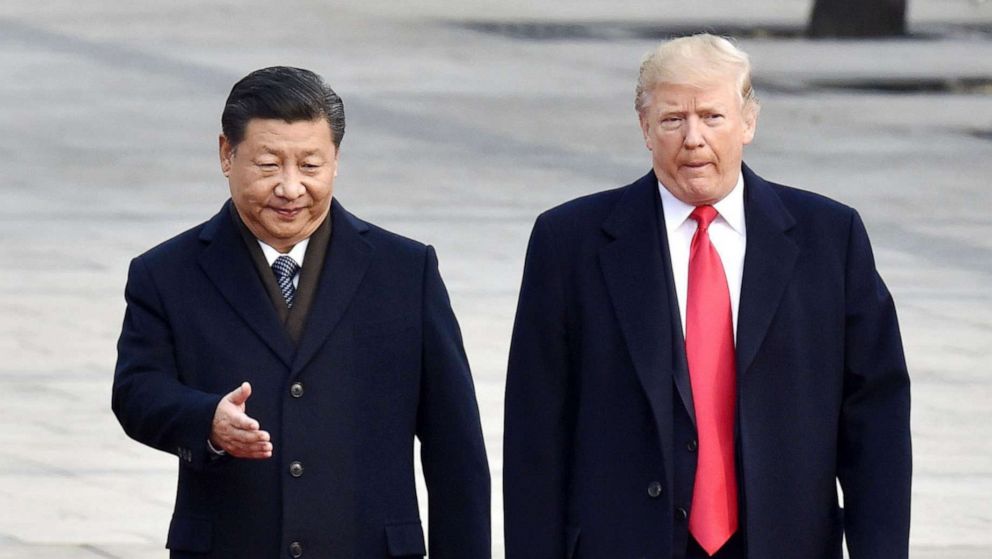
Why Donald Trump Has Privatized the Moon
Last week, President Donald Trump signed an executive order allowing American companies to carry out mining operations for natural resources on the moon and other celestial bodies. The executive order states that “it shall be the policy of the United States to encourage international support for the public and private recovery and use of resources in outer space.”
Besides this, as Russian news agency TASS points out, the executive order contains the provision that outer space is not a global commons and that private property rights will be extended within it: “Outer space is a legally and physically unique domain of human activity, and the United States does not view it as a global commons.”
Notice that the Outer Space Treaty that was adopted by the U.N. General Assembly in 1967 declares that outer space is free “for exploration and use by all States without discrimination of any kind, on a basis of equality and in accordance with international law, and there shall be free access to all areas of celestial bodies.” And here’s Trump trying to “privatize” those areas of celestial bodies that the U.S. has identified as strategically significant.
However, the president’s initiative, for all its negatives – provocation, divisiveness, aggressiveness, politicization, preelection propaganda rhetoric – does have an important, positive element. In this tough period of pandemic on Earth, it is providing us with a powerful impulse to get out of this crisis and the relentless focus on COVID-19; it is stimulating an interest in life and in the future, and drawing attention to the plans and perspectives for space activity, particularly on the moon. And it has already had a significant and paradoxically positive impact on the public conscience and politics in the U.S. and the world, including Russia, where the federal authorities, Roscosmos* and the expert community have been actively and critically responding. The entire space community is discussing Trump’s executive order intensely, stepping out of the frustration caused by earthly problems and involuntary self-isolation.
The exploration of outer space and the appropriation of its resources is not the goal, but the new way of organizing the economy and all national and global activity on Earth and in space in the 21st century. This activity will bring about the creation of new technologies and jobs in science, industry, education and so on.
International space law has long been lagging behind present-day reality and it’s high time that this was changed in a fundamental way. We need to embrace the complexity of the legal aspects: the rights of the individual, the licensing of activities, the protection of intellectual property, the mining and use of natural resources, environmental protection, new technologies, technical regulations and the security of technical activity, and the preservation of natural and cultural heritage, etc.
A new reality is approaching, and we need a new “rulebook” for space exploration. The signs for this have been there for more than five years, as has been reflected in U.S. space policy since 2015. Moreover, in 2017, Luxembourg, which is in no way a spacefaring nation, suddenly initiated the creation of a new rulebook by adopting a law on the exploration and use of space resources. The first article of this law states that “space resources are capable of being appropriated.”
There is a well-known proverb in international politics: If you’re not at the table, you’re on the menu. The task of Russia, China and other countries is to be a subject of, not an object in, the new situation, which is flaring up right in front of our eyes. This requires reformatting the “no-holds-barred game” that the U.S. is now starting to play. In this case, it is important not to end up “outside of the game” by leading a game of your own.
There are various possible scenarios of how the new rules for space exploration might be developed. Russia’s position is in line with current international space law, but it is still extremely conservative and passive. That said, due to innovations in Russian law, there is now a clash of priorities of national legislation over international law. This is hardly the best and most effective strategy. It is inevitable that Russia will need to get out of this “space trench,” take a seat at the negotiating table and, perhaps, try to get ahead in order to push for and defend more adequate conditions for addressing our interests. But first we really need to understand our own interests and articulate them.
Yuri Gagarin’s first spaceflight in 1961 and Neil Armstrong’s first steps on the moon in 1969 did not solve the problems on Earth and did not lead to large-scale economically motivated space exploration. But they did change the direction of human endeavors; they helped us to envision and create new goals, technologies, realities, perspectives.
Now, in 2020, the next age of space exploration is here. NASA is actively implementing the Artemis program. Within the framework of this program, two astronauts, one man and one woman, will land, live and work on the moon in 2024.
NASA has announced its new astronaut selection process. Applications were submitted between March 2 and March 31. There were more than 12,000 applicants for the flight into space, to the moon and to Mars. That means that around 37 people per million U.S. citizens are literally shooting for the stars! In Russia, Roscosmos has been conducting its third open astronaut selection contest since 2019. There have been around 900 participants – six people for every 1 million citizens of the Russian Federation. This is twice as high as the number of participants in the previous competition in 2017, which was 420.
All of this proves that there is a growing desire to explore space in the name of ensuring the survival and development of the human race both on and beyond Earth. In our catastrophic times, when thousands of people are suffering and dying from COVID-19 right here and right now on Earth, particularly in the U.S. and the EU, we need solidarity, to show mutual support, to join forces to quickly defeat the pandemic and overcome the impact it is having on people, countries and economies – this includes the space industry, and the entire infrastructure and culture of civilization.
Moreover, we can and should retain and support a belief in people and humanity, in our ability not only to survive on Earth, but also to explore space by applying our knowledge, experience, new ideas and technologies; by realizing our dreams, energy and aspiration for the future of a new generation of Earthlings.
*Editor’s note: Roscosmos is a Russian government corporation responsible for space flights and cosmonaut programs.


